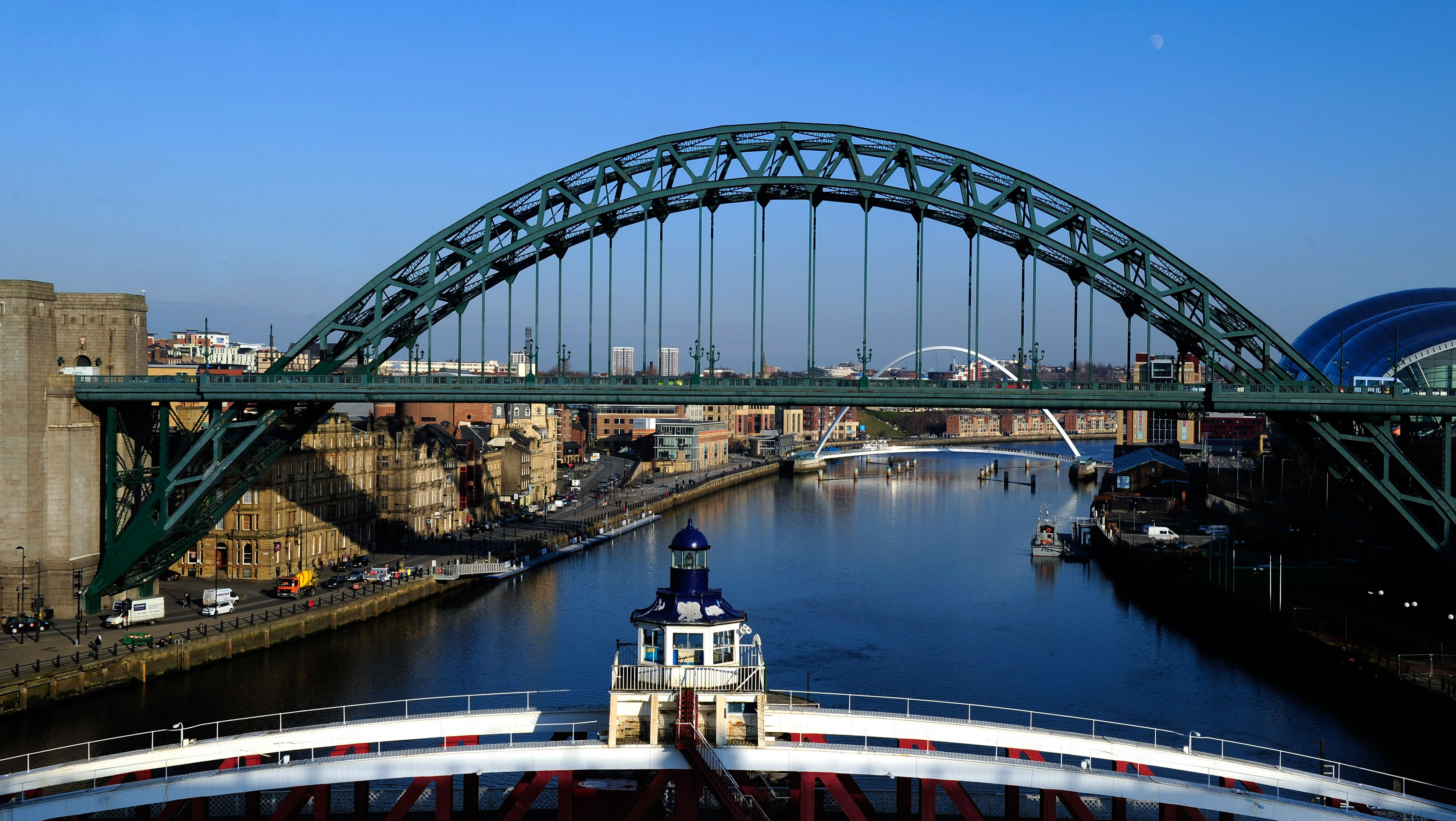Power Up The North: how big is England’s North-South divide?
Media outlets call on politicians to show how they will bridge the gap

A free daily email with the biggest news stories of the day – and the best features from TheWeek.com
You are now subscribed
Your newsletter sign-up was successful
More than 30 local and regional newspapers from across northern England have launched a campaign to narrow the country’s North-South divide.
The media outlets, including titles run by JPIMedia, Newsquest and Reach, are calling on the main political parties and Tory leadership contenders to spell out how they intend to bridge the gap as part of Power Up The North.
“We are not alone in believing that the North has been treated as the ‘poor relation’ for too long by successive governments, Conservative and Labour alike, who have allowed social, health and economic inequalities between this region – and the more prosperous London and Southeast – to widen,” says Newcastle’s ChronicleLive.
The Week
Escape your echo chamber. Get the facts behind the news, plus analysis from multiple perspectives.

Sign up for The Week's Free Newsletters
From our morning news briefing to a weekly Good News Newsletter, get the best of The Week delivered directly to your inbox.
From our morning news briefing to a weekly Good News Newsletter, get the best of The Week delivered directly to your inbox.
So how wide is the divide?
Public spending
Analysis by the think tank Institute for Public Policy Research North, published in December, found that total public spending since the Government began its austerity programme fell by £6.3bn in real terms in the North - more than in any other region of the UK. It rose by £3.2bn in the Southeast and Southwest, but went down £1.1bn in London. The report also found that the North-South divide in pay, wealth and life expectancy was growing.
Economic growth
A free daily email with the biggest news stories of the day – and the best features from TheWeek.com
David Smith, economics editor of The Sunday Times, says the economic growth rates of the Northeast, Northwest, Yorkshire and the Humber are “lagging well behind” the South, having only doubled their size since 1970. By contrast, London’s economy is more than 3.3 times the size it was five decades ago, while the Southeast is 2.7 times bigger.
Meanwhile, London’s productivity is 50% to 60% higher than that in Yorkshire/Humber and the Northeast, and 44% higher than the Northwest.
“Regional imbalances can be seen at the heart of the discontent many feel with the country’s economic performance” and “were a factor, possibly quite a significant one, in both the Brexit vote and [the 2017] inconclusive general election”, says Smith. Yet it is Brexit that has “overshadowed” the Government’s plans to improve the northern economy, he adds.
Transport
Poor transport links are said to be one of the key factors behind the economic divide. Analysis by Network Rail found that the level of commuting between northern cities is lower than expected, with cities across England experiencing lower access to jobs compared with London.
The average number of jobs accessible within an hour by rail for people in the Northwest was estimated to be 187,000, compared to 1.7 million for those in London.
The Government has launched Northern Powerhouse Rail to help address these problems, with plans to link cities including Liverpool, Manchester, Bradford, Sheffield, Leeds, Newcastle and Hull.
Decision-making
Former chancellor George Osborne made the call for a Northern Powerhouse in June 2014, promising “serious devolution of powers and budgets” for cities that wanted a new elected mayor.
Five years later, one regional business leader told the Financial Times the plans seem to be “on life support”.
While several cities now have elected mayors, newspapers today called for a “fundamental shift” in decision-making out of London, giving the 15 million people of the North more power and self-determination. They also want the Northern Powerhouse Minister – currently Jake Berry – to be given full Cabinet status. The role was expanded last week to become a joint minister between the Ministry of Housing and the Department for Business, Energy and Industrial Strategy.
On Friday, Berry said: “We’re investing more into transport in the north than any other government in history, and with nearly 50% of the north represented by Metro Mayors, a Northern Powerhouse economy worth over £339 billion, and now, with an expanded, cross-governmental ministerial position, that partnership is stronger than ever.”
He added: “We are on the cusp of a new era for the north with our modern Industrial Strategy boosting economic growth, supporting advanced manufacturing and creating the right economic conditions to make the Northern Powerhouse one of the most competitive, business-friendly regions not just in the UK but in the world.”
A refreshed Northern Powerhouse Strategy is due to be published later this year.


